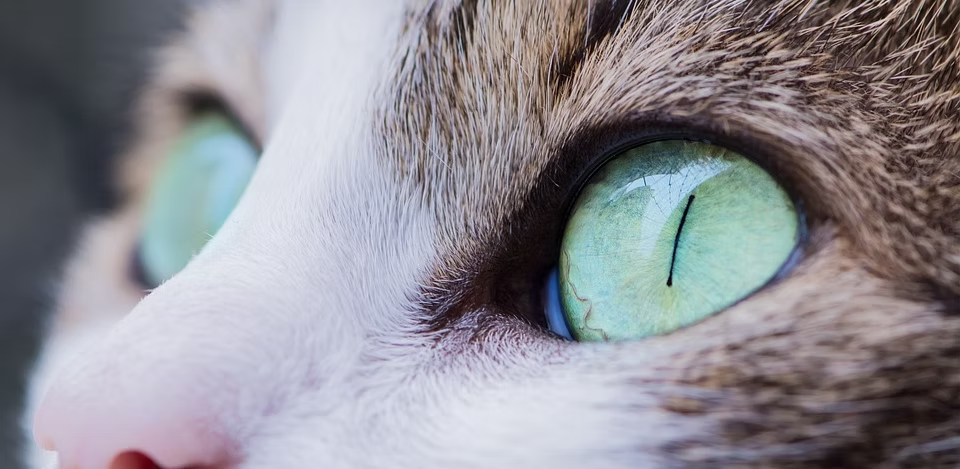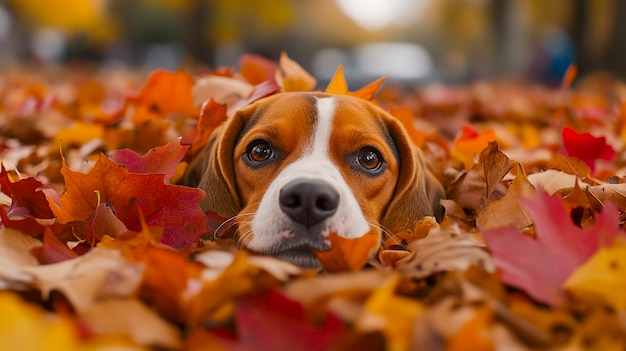Managing Pet Eye Allergies in North Texas: Seasonal Tips for October


Managing Pet Eye Allergies in North Texas: Seasonal Tips for October
As the crisp October air settles over North Texas, many pet owners notice their dogs or cats rubbing at their eyes or squinting during outdoor adventures. Fall in Plano and the surrounding communities is a beautiful time for families and their pets, but it also marks a peak season for pet eye allergies in North Texas. Our region’s climate, with warm days and bursts of autumn winds, stirs up pollen, dust, and other allergens that can irritate your pet’s sensitive eyes.
At Animal Eye Specialists, located at 1545 W Plano Pkwy, Plano, TX 75075, we understand how concerning it can be to see your dog or cat uncomfortable or in distress. That’s why our board-certified veterinary ophthalmology team specializes in diagnosing and managing eye problems that general practice veterinarians may refer to us, including seasonal eye allergies. In this guide, we’ll explain how to recognize allergy symptoms, why they happen in North Texas, what you can do at home to help your pet, and when to seek advanced ophthalmic care. If you are looking for a veterinary ophthalmologist near me or expert seasonal eye care for pets in Plano, our doors are open to support your pet’s vision and comfort.
For more information about the eye diseases and conditions we treat, visit our page about common eye diseases affecting pets.
How to Recognize Pet Eye Allergies in North Texas
Key Symptoms to Watch for in October
During the fall, it’s common for pets in North Texas to experience a range of eye discomfort triggered by allergens. Recognizing these early signs is crucial for preventing complications. Symptoms include redness in the whites of the eyes, watery or excessive tear production, swollen or puffy eyelids, and frequent rubbing or pawing at the face. Additionally, you may notice your pet squinting, blinking more than usual, or showing reluctance to go outside, especially on windy days. In some cases, a thin, yellow or green discharge may develop, which can signal a secondary infection rather than simple allergies.
Many pet owners in Plano and surrounding communities first notice their dog or cat becoming more sensitive to light or seeking darker corners indoors. Other signs are subtle, such as a mild increase in blinking or a sudden dislike of car rides with the window down. If your pet has a history of seasonal allergies, these symptoms may appear every year around the same time. For more details on symptoms associated with chronic conditions, our resource on chronic ophthalmic (eye) diseases in pets may offer additional guidance.
Why Do Pet Eye Allergies Occur in North Texas?
Understanding Regional and Seasonal Triggers
The unique climate of North Texas, especially in cities like Plano, creates a perfect storm for airborne allergens in the fall. Ragweed pollen, mold spores from fallen leaves, and dust from dry weather are common culprits that irritate sensitive pet eyes. As temperatures fluctuate between warm afternoons and cooler nights, plants release more pollen, and gusty winds carry these particles into homes, parks, and backyards.
Pets who spend more time outdoors, visit dog parks, or accompany their owners on nature walks may encounter more allergens. Short-nosed breeds and those with prominent eyes, such as Bulldogs, Pugs, or Persian cats, are particularly susceptible to irritation. Additionally, pets with underlying health issues or previous history of allergic reactions may experience heightened symptoms, making seasonal eye care for pets in Plano even more important during autumn.
It’s also important to realize that indoor allergens, such as dust mites and household mold, can compound outdoor triggers. In homes where windows are open to enjoy the fall breeze, pets may be exposed to both indoor and outdoor allergens simultaneously. Understanding these environmental factors can help you make informed decisions about your pet’s daily routine and care.
Advanced Veterinary Ophthalmology for Pet Eye Allergies in Plano
What to Expect from Specialty Eye Care
When allergy symptoms persist or worsen, seeking the expertise of a board-certified ophthalmologist is the next step. At Animal Eye Specialists, our veterinary professionals utilize advanced diagnostic tools tailored specifically for eye conditions in pets. A thorough examination may involve slit lamp evaluation to assess the eye’s surface and eyelids, fluorescein staining to detect any microscopic scratches or ulcers, and tonometry to measure intraocular pressure if glaucoma is a concern. These procedures are quick, gentle, and designed to minimize stress for your pet.
Treatment approaches for pet eye allergies in North Texas depend on the severity and underlying cause. Mild cases may respond to topical lubricating drops or prescription antihistamine eye drops formulated for veterinary use. In more persistent situations, we may recommend anti-inflammatory medications or specialized treatments to address secondary infections or chronic irritation. Our goal is to provide relief while protecting your pet’s vision and overall eye health.
Some pets benefit from ongoing management protocols, including regular follow-ups with our ophthalmology team. For complicated or recurring cases, we work closely with your primary care veterinarian to develop a tailored plan. If you are searching for a specialist vet near me for in-depth seasonal eye care for pets, Animal Eye Specialists is equipped to provide comprehensive diagnostic and therapeutic options.
If you are interested in learning how we conduct thorough eye exams, our page on direct and indirect ophthalmoscopy for comprehensive pet eye exams explains more about our diagnostic approach.
Simple Steps for Home Management and Prevention
Practical Tips for Reducing Pet Eye Allergy Discomfort
While professional treatment is crucial for moderate to severe symptoms, there are steps you can take at home to make the fall season easier for your pet. Keeping windows closed during high pollen days can significantly reduce allergen exposure indoors. Wiping your pet’s face gently with a damp cloth after outdoor walks helps remove pollen and dust from the fur and around the eyes. Additionally, vacuuming carpets and washing pet bedding regularly can limit indoor allergens.
Bathing your pet more frequently during allergy season may help reduce overall allergen load on the skin and fur, though it’s wise to use a gentle, pet-safe shampoo. For pets that enjoy car rides, keeping the windows up on windy days can prevent airborne irritants from getting into their eyes. Monitoring local pollen counts and choosing to exercise your pet during times of lower allergen levels can also make a difference.
If your pet wears a protective cone or eyewear due to a previous eye procedure, maintaining cleanliness and ensuring a proper fit become even more important during allergy season. Always avoid using over-the-counter human eye drops unless specifically directed by your veterinary ophthalmologist, as some ingredients are not safe for pets.
When to Seek Veterinary Ophthalmology Care in Plano
Recognizing When Advanced Care is Needed
While mild symptoms can often be managed at home, certain warning signs indicate the need for prompt evaluation by a veterinary ophthalmologist. These include persistent redness or swelling lasting more than a few days, green or yellow discharge from the eyes, sudden vision changes such as bumping into furniture, squinting that does not improve, or signs of pain such as refusal to open the eye or sensitivity to touch. If your pet is pawing at the eye excessively or you notice the appearance of a cloudy spot on the surface, immediate assessment is necessary.
In North Texas, the risk of secondary infections or more serious ocular conditions increases during allergy season, especially if the protective surface of the eye (the cornea) becomes compromised. For some pets, untreated allergies can progress to chronic eye diseases or recurrent issues each fall. Our veterinary professionals encourage you not to wait if you notice these symptoms; early intervention can preserve your pet’s comfort and vision.
When searching for a veterinary ophthalmologist near me, it is important to choose a clinic with advanced diagnostic capabilities and a compassionate, Fear Free approach. At Animal Eye Specialists, every eye exam is performed by a board-certified ophthalmologist, ensuring the highest standard of specialty eye care for pets in Plano and surrounding communities.
If you have questions about your pet’s symptoms or want to understand more about the procedures we use, our resources for pet owners about animal eye health page offers helpful information.
Compassionate, Specialized Eye Care for Pets in Plano
October’s beauty in North Texas comes with unique challenges for sensitive pets, but with the right guidance, you can help your dog or cat enjoy the season in comfort. Recognizing the signs of pet eye allergies in North Texas and taking simple preventive steps at home can reduce discomfort, but when symptoms persist, advanced veterinary ophthalmology is essential. Our team at Animal Eye Specialists is dedicated to providing expert seasonal eye care for pets in Plano and the surrounding areas, always prioritizing your pet’s comfort and vision.
If you are concerned about your pet’s eyes or searching for a specialist vet near me for personalized care, do not hesitate to reach out. We welcome referrals from general practice veterinarians and are happy to answer your questions about our advanced services. Contact our clinic at (972) 845-9948 or visit us at 1545 W Plano Pkwy, Plano, TX 75075 to schedule a consultation. For more detailed information about the diagnosis and treatment of chronic ophthalmic (eye) diseases in pets, explore our service offerings.
Your pet’s vision and comfort are our top priorities. Let Animal Eye Specialists be your trusted partner for seasonal eye care for pets in Plano and beyond.
This article is for informational purposes only and does not replace professional veterinary diagnosis or treatment. Always consult a board-certified veterinary ophthalmologist for specific concerns about your pet’s eye health.


















